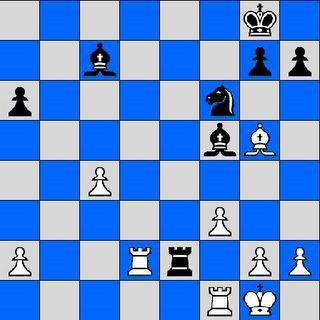What would you do?

White's last move was 28. Rd2 and offered a draw. Black to move.
White has 45 minutes left on the clock and black 25.
Rating white= 1803
Rating black= 1701
Would you accept the draw?
Last saturday I had this position during a tournament.
This is a typical situation for me.
Black (me) has worked hard for a good position against a stronger opponent.
Which costed me much time.
Then the opponents offers a draw.
Anxiety to loose ratingpoints creeps in, and I accept.
Afterwards you think "I'm a coward, white has no winning chances, black has to try his luck.
After 28. .... Rd2: 29. Bd2: Bb6+ 30. Kh1 Bd3 31. Rc1 the white pawn on c4 will drop off the board in the end.
I lack the courage to follow my deeming of the position.
I really wished I had courage enough to say "I never a draw again".
And stick to that.
Or do you think there's nothing real for black in this position, and with less time against a stronger opponent it's reasonable to accept the draw?
Tough one. I personally would play on as Black, but honestly it would be more for the educational experience. I have received a few "gifts" in the endgame before, and might just get one again.
ReplyDeleteI would require lots of time to handle the next 20 or even 40 moves. The big minus is I just don't see a winning plan for Black. On the surface it looks to me like Black's advantage enough that it's advisable to play: the advantage of the 2 Bishops, the ability to force the White King to h1, time to mobilize the Black King, and domination of the light squares, and a way to blockade White's passed pawn. The longer I looked at it though, the more it seemed that the long term advantage would eventually go to White if White's passed pawn advantage becomes a two passed pawn advantage. In that case, a draw seems great.
Difficult position. Not sure what i would do. Two pieces for the rook is an advantage for black but white has two pawns more of which the c-pawn is a freepawn. So a draw is a reasonable result i guess.
ReplyDeleteOn the other hand you missed an oportunity to learn something, to learn how to handle such positions. But i don't know how low on time you where.
A little question: "Would you play on if this was against a lower rated opponent?"
If the answer is yes then you are to much concerned about your rating. And that is bad. Since we, amateurs, don't play for ratingpoints (we don't have to earn invites or make money with chess) but for fun.
Logis,
ReplyDeleteA little question: "Would you play on if this was against a lower rated opponent?"The answer is probably yes.
And it's true, from time to time I'am too concerned about my ratingpoints. Especially when I gained a lot of them the last period. It's cyclic, when I loose a lot of games I think "what the heck" and I play on.
I have little confidence in my endgame capabilities.
After my tactics program I intend to do endgametraining.
One of the players in our club, a master, has a simple rule "Only offer or accept a draw when you think you are losing". While I don't follow this rule myself, I think it is good advice.
ReplyDeleteOf course, once your opponents know this is your strategy they can use it against you. See an example here.
25 minutes is not a lot of time to find the correct thread in this type of position. It is one thing if you see the complete sequence that leads to a win. Add 5 minutes to your opponent’s clock, or subtract 5 minutes from yours and the time difference is 2:1 or better for your opponent. That is a sizeable advantage. Be thankful he offered the draw. Some players might have tried to win on time especially against a lower rated player.
ReplyDeleteIt looks like Black will have to use one of his extra pieces for blockading the passed C pawn until he can shift his King all the way over to the queenside for support.
Lots of moves and positions to calculate in such a short time frame.
I think you made the correct decision in this particular scenario. You gained points and most importantly experience.
Plus you shared a really cool position with us. Good Job!